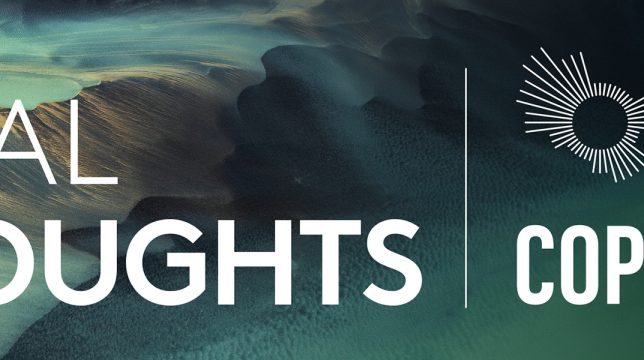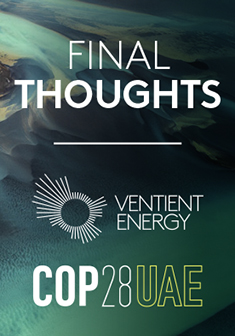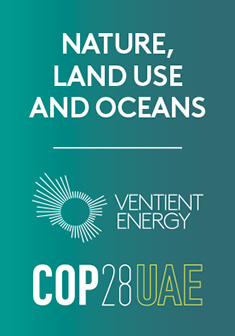Over the course of human history there have been few events more impactful than the revolution of our energy systems. It has happened several times, and each time marks a clear turning point in the history of our species – from the agricultural revolution ~10,000 BCE, to the advent of the steam engine in the 1800’s, literally igniting the industrial revolution. Perhaps the most influential is when we discovered how to extract and burn fossil fuels in the 19th century – the rest, as they say, is history.
But the very nature of a revolution means that things change, and in the context of our energy systems, this means changes to the socio-economic fabric of our society. History tells us that when society moves quickly away from one technology to another, people and communities can unfortunately be left behind. We are now in the midst of another energy revolution, the ‘clean energy revolution’, which once again is set to change the way in which we produce and utilize energy. It is critical that in this transition we consider communities, through jobs and livelihoods, skills and expertise, to ensure that the transition benefits all and leaves no one behind.
The ‘Energy and Industry, Just Transition and Indigenous People’ theme at COP28 will explore the ways in which we must rapidly change our energy production and consumption, whilst doing so in a fair, inclusive and equal manner that considers and limits the negative impacts on global communities, including those with indigenous rights to natural resources and land. The concepts of this theme are explored further below.
Energy and Industry: Moving to a Low Carbon Future
Energy and industrial activities have long been at the heart of climate change concerns. According to the International Energy Agency (IEA) since the beginning of the industrial revolution, we have burned upwards of 2 trillion metric tons of coal and 175 billion metric tons of oil. The unwavering endeavor for technological advancement has both fueled and been fueled by our reliance on these natural resources, as a means to create energy, as well as manufacture and build our modern society.
We know, however, that our reliance on fossil fuels has come at a cost. The release of greenhouse gases locked inside fossil fuels has been the primary driver for global temperature increase since the 1800’s. In 2020, energy-related CO2 emissions accounted for approximately 73% of total global emissions, with energy for industrial processes contributing 30% of those emissions (IEA).
It is therefore obvious that to avoid further temperature increases and the associated impacts, we must transition to a low carbon energy system, dominated by renewable energy that harnesses natural, carbon free energy sources. In a world where 80% of global energy consumption still comes from fossil fuels (Energy Institute, 2023), this transition needs to accelerate rapidly.
At Ventient Energy, we face this challenge head on. By owning and operating renewable energy assets across Europe, we provide clean energy to Europe’s homes, helping accelerate the transition away from fossil fuels and doing so in a way that limits our own operational emissions.
The transition goes beyond Europe, however. To facilitate the global transition, COP28 will host conversations, seminars and workshops exploring the means to which this is possible, looking at clean energy sources such as conventional renewables as well as emerging technologies such as hydrogen and SMR nuclear, and the mechanisms required to deploy these at scale.
Just Transition: Balancing Climate Action and Social Equity
The concept of a “Just Transition” recognizes that the move towards a sustainable, low-carbon economy should not leave workers and communities behind. It emphasizes the need for fairness, inclusivity, and social equity in the transition to a green economy. The term has been around since the 1980s, when it was first used in a movement by US trade unions to protect workers affected by new water and air pollution regulations.
Indeed, an event synonymous with the term is the sudden closure of UK coal mines in the 1980’s as an example of a poorly executed transition away from a legacy technology. In that instance, many low-income communities around the UK that had been reliant on the coal industry to make a living were left stranded with no alternative work or re-skilling opportunities in the wake of widespread pit closures – many of these communities are still recovering from this today.
A successful energy transition will involve re-deploying existing skills in high-emitting industries into the low carbon economy by providing the upskilling support and frameworks needed. A challenge though this may be, the opportunities for job creation and economic growth are massive. The International Labour Organization (ILO) estimates that 24 million new jobs could be created by 2030 in the renewable energy sector as part of a just transition, and Mark Carney, UN Special Envoy for Climate Action and Finance, calls net zero the ‘greatest commercial opportunity of our time’.
As a key player in Europe’s energy transition, Ventient Energy welcomes people with diverse and varied backgrounds because the challenge of the energy transition demands skills that cut across industries. Utilising these skills enables us to create a diverse web of knowledge that can help us tackle some of the most challenging aspects of delivering the renewable energy that is crucial to decarbonising Europe’s grid.
Ultimately, achieving the increasingly ambitious climate goals will also require broad political support. A Just Transition can build this support by addressing the concerns of workers and communities affected by climate policies, enabling prosperity and opportunity within low-income communities. Like many things relating to climate change, political will and leadership will play a fundamental role in the delivery of a truly Just Transition, and this will be a key topic discussed at COP28. Read more about the Just Transition here.
Indigenous People: Guardians of Biodiversity and Climate Stewards
Indigenous communities have a deep connection with their land and have often acted as stewards of natural resources. Recognizing their role in climate action is essential for preserving biodiversity and mitigating climate change. Indigenous communities comprise less than 5% of the world population yet have tenure rights over land containing 80% of the Earth’s biodiversity in forests, deserts, grasslands, and marine environments (WWF, World Resources Institute, 2023).
Not only do indigenous communities live on and protect this land, but they also possess unique knowledge of sustainable land management built up over thousands of years. It is therefore vital that we protect this land and the biodiversity within, but also learn from these communities to better understand our relationship with the natural environment and incorporate their knowledge into future climate and biodiversity policies.
At COP28, Indigenous Peoples Day will recognise the importance of indigenous communities’ intergenerational knowledge, practices and leadership in climate action and in stewarding planetary health as well as mechanisms to improve their direct access to finance. The day will seek to strengthen the role of these communities and reinforce the urgency of a fully inclusive, all-of-society approach in the transition to net zero.
Ensuring an inclusive transition
The three key sub-themes of Energy and Industry, Just Transition, and Indigenous People highlight the complexity and urgency of addressing climate change. Together, these themes represent a holistic approach to tackling climate change and will form an interesting and important day of action at COP28. Decarbonizing energy and industry is central to reducing global emissions, a Just Transition ensures that climate action benefits all, and recognising the vital role of indigenous communities in climate stewardship is essential for a sustainable future.
It is of critical importance that in our efforts to rapidly move towards a low carbon energy system, we do not leave countries and communities behind. Not just because of the moral obligations we all have to strive for equality within our society, but also because of the vast socio-economic opportunities that the transition presents.
As previously mentioned, when our energy system is revolutionised, it can bring with it incredible change and prosperity for millions, if not billions of people. We now have the opportunity to steer this transition into the greatest energy revolution the world has ever seen, benefiting all and leaving nobody behind. We hope that the conversations and actions at COP28 will take us closer to this ambition.
Sources:
https://www.iea.org/reports/world-energy-outlook-2022
What is just transition? And why is it important? | Climate Promise (undp.org)
https://www.ilo.org/global/about-the-ilo/newsroom/news/WCMS_628644/lang–en/index.htm


More articles


COP28 - What happened and was it a success?
Last week we saw COP28 come to a close, and, as President Sultan Ahmed Al Jaber dropped the final hammer of the conference, it’s fair to say there were some mixed emotions regarding the outcome. Over the last 8 weeks, we have been following…


Nature, Land Use & Oceans
We are facing an ecological “polycrisis” The 2023 Global Risk Report[i] published by the World Economic Forum warns that the world is hurtling towards an era of “polycrises”, meaning multiple interconnected crises happening at the same…


